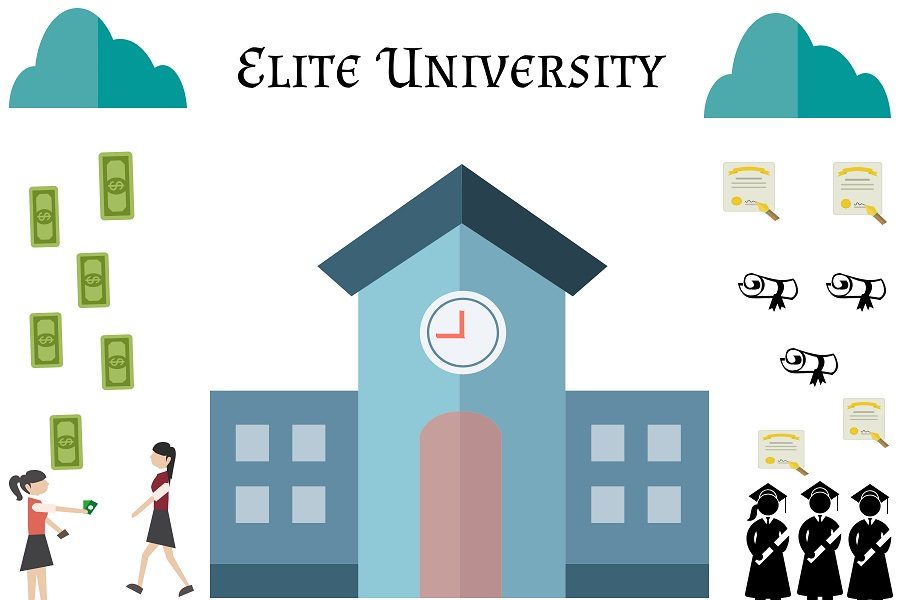Celebrities Cheat, Bribe Getting Kids into Top Schools
Recently numerous celebrities have been charged for allegedly bribing figures connected to elite universities in order to gain admission for their children.
May 23, 2019
Fifty wealthy celebrity parents, including Felicity Huffman, Lori Loughlin and husband Mossimo Giannulli, were arrested March 12 for their involvement in an alleged nationwide college entrance cheating scandal in which large sums of money were paid to college admissions counselor William Rick Singer, who was the ringleader in the scandal.
Singer helped get their children admitted to prestigious colleges including Georgetown, Harvard, Yale, Stanford, and Wake Forest Universities. This forced many schools, including Maryland schools that RHS students apply to, to reevaluate their levels of security surrounding the admissions process.
The methods Singer used to help his clients’ children included bribing college athletic coaches to allow prospective students of the scandal to be granted admission through recruit status and paying off SAT/ACT test proctors to change students’ test scores, among other lucrative methods.
Every school has different ways of screening for fraud. Towson University (Towson), University of Maryland Baltimore County (UMBC) and University of Maryland College Park, which are common schools for graduating RHS seniors to attend, all take preventive measures to ensure applications are legitimate and free of any attempts at cheating.
“The only way we would receive false information is if the school or testing agency sent us those grades or scores. If the school or testing agency informs us that the information they sent was falsified, we will handle each of those cases on an individual basis,” Towson Associate Director of Recruitment Jennifer Ziegenfus said.
As the number of high school students who apply to college increases every year, the application process gets more competitive, forcing admissions officers to deny more prospective students. The competitiveness of being accepted to college, especially for top-tier institutions such as the ones involved in the scandal, is likely the primary motivation for parents like Loughlin to pay extraordinarily large sums of money for their children to be accepted to these institutions.
“Applying for college now gets more competitive every year,” UMBC Undergraduate Admissions Counselor Dale Bittinger said. “It saddens me every year not to allow everyone. I wish I could, but I cannot.”
Bittinger maintains that UMBC implements extensive background checks to put an end to cheating at school, double-checking every piece of information an applicant sends to UMBC and talking to teachers and coaches to make sure nobody lies on their application.
“[College admissions] gets more competitive every year and we need to make sure no one is lying, because if we give them a seat here at UMBC and they lie that means we can’t give that seat to a qualified applicant,” Bittinger said.
Many students and parents were understandably furious upon the scandal’s exposure. Students who are accepted to elite universities work extremely hard for their acceptances, often boasting an exemplary high school GPA and outstanding SAT/ACT scores while simultaneously balancing various time-consuming extracurriculars.
Senior Kyle Pico will be attending Cornell University in the fall, an Ivy League institution that has an acceptance rate of 15.1 percent.
“People who are underprivileged have to work twice as hard to get into a good school like Cornell,” Pico said. “It is totally corrupt that certain people, like those involved in the scandal, can simply buy their way into fine schools.”
The college admission incident continues to affect colleges and especially admissions counselors, who are now pressured even more to verify every piece of information sent to the school to prevent similar occurrences in the future. The now-infamous scandal shines a light on the fact that even the world’s elite cannot get away with cheating the system.





